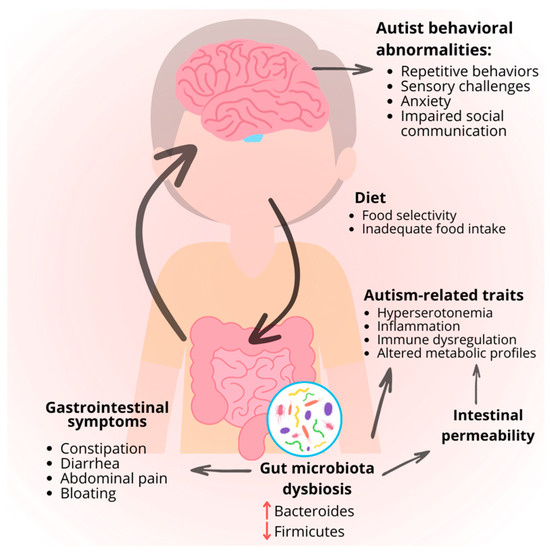Creating meaningful friendships with help from an Autism Therapist's insights
Creating meaningful friendships with help from an Autism Therapist's insights
Blog Article
Understanding the Influence of Behavioral Autism on Every Day Life and Social Communications
You could not understand just how deeply behavior autism influences day-to-day life and social communications. People on the range often navigate a world full of communication obstacles and sensory overload. These challenges can result in frustration and isolation, influencing their relationships and general well-being. Comprehending these subtleties is important for cultivating encouraging atmospheres. What strategies can we implement to develop even more inclusive spaces and meaningful links? The responses might surprise you.
Defining Behavioral Autism and Its Features
Behavior autism, frequently described as autism range condition (ASD), includes a variety of problems defined by challenges in social communication, communication, and recurring habits. You might see that individuals with ASD often battle to translate social cues, which can lead to misconceptions in conversations. They might locate it hard to establish eye get in touch with or take part in little talk, making social circumstances feel overwhelming.
Communication problems can materialize in numerous ways, from postponed speech growth to a preference for using less words. By recognizing these qualities, you can promote a setting that advertises approval and urges effective interaction, aiding people with autism flourish in their everyday interactions.
The Spectrum of Autism: Comprehending Irregularity in Habits
Autism range condition (ASD) isn't a one-size-fits-all diagnosis; it varies extensively amongst individuals. You may observe that some people with ASD display moderate signs, while others might encounter a lot more significant difficulties. This irregularity can materialize in behaviors, interests, and sensory sensitivities. You might run into people that are highly verbal and involve easily in conversations, while others might favor singular tasks or connect non-verbally.
Additionally, the way individuals with ASD react to sensory input can differ significantly; some could be bewildered by bright lights or loud noises, whereas others flourish in boosting atmospheres. The spectrum additionally includes differences in social interactions; some people may struggle to translate social cues, while others browse social settings with relative ease. Understanding this irregularity is crucial, as it assists you appreciate each individual's distinct experience and dressmaker support to their specific demands, fostering an extra inclusive setting for everybody.
Interaction Difficulties Encountered by Individuals With Autism
When you connect with individuals on the autism range, you may see their distinct interaction challenges. They usually deal with troubles with both verbal and nonverbal signs, which can influence their social interactions. Recognizing these obstacles is essential for cultivating much better links and support.

Verbal Interaction Difficulties
Several individuals on the autism range experience spoken communication problems that can substantially influence their day-to-day interactions. You may locate it challenging to express your ideas, sensations, or requires plainly. This can lead to stress for both you and those around you, as misunderstandings occur. You may battle with launching discussions, maintaining a subject, or comprehending subtleties in speech. Typically, you could prefer utilizing straightforward language or repeated expressions, which can restrict your ability to involve in deeper discussions. Your quantity, rate, or tone may not line up with social expectations, triggering others to misinterpret your intents. Acknowledging these difficulties can assist you and your support network develop methods to improve communication and foster far better connections with others in your life.
Nonverbal Interaction Obstacles
Verbal communication isn't the only obstacle individuals on the autism range face; nonverbal interaction obstacles can be just as substantial. These challenges can lead to misunderstandings or false impressions of social signs, making interactions really feel confusing or overwhelming. By attending to nonverbal interaction, you can discover strategies to improve your social experiences and enhance your total top quality of life.
Social Communication Impacts
Social communications can often really feel frustrating due to the distinct communication challenges encountered by individuals with autism. Recognizing these challenges can help you discover approaches to boost communication, such as practicing social skills in safe settings or using visual help. Recognizing your needs allows you to navigate social interactions with better self-confidence and simplicity.
Social Communication and Connection Building in Autism
While building connections can be testing for individuals with autism, comprehending their one-of-a-kind viewpoints and communication designs can cultivate purposeful connections. You might see that numerous individuals on the spectrum choose direct communication and might battle with social cues or small talk. By being simple in your interactions, you can assist develop an environment where they feel comfy.
Engaging in shared interests can also serve as a bridge to much deeper connections. Whether it's a leisure activity, a favorite program, or a common interest, these common strings can open doors to friendship.
Life Routine: Navigating Strategies and difficulties
Navigating daily life routines can be particularly testing for people with autism, specifically when unexpected modifications happen. To browse these obstacles, take into consideration implementing visual timetables or checklists.
Developing a routine that consists of sensory breaks can likewise be beneficial. You can plan short breaks throughout your day to recharge. It's necessary to connect with those around you, letting them recognize your demands and preferences. This assists develop an understanding setting.
Last but not least, technique mindfulness techniques to handle tension and stress and anxiety. Straightforward breathing workouts or basing strategies can make a substantial difference. By incorporating these strategies, you can improve your day-to-day regimen and reduce disruptions, making life really feel much more workable.
Strengths and Capacities of Individuals on the Autism Range
Comprehending every day life routines is just one facet of the autism experience. Numerous individuals on the autism spectrum have impressive toughness and abilities that establish them apart. You might find that your attention to detail is phenomenal, allowing you to succeed in jobs that require accuracy and emphasis. Your capability to believe outside package can lead to ingenious remedies in various scenarios.
Moreover, your memory skills often radiate, especially in locations of passion. Aba Therapist Near Me. This propensity for maintaining info can make you an important resource in fields like science, art, or technology. You might also show solid aesthetic thinking, allowing you to imagine complex concepts and address troubles creatively
Additionally, your distinct point of view on the globe can cultivate empathy and understanding in others, improving social communications. Accepting these toughness not only improves your self-confidence but additionally aids others appreciate the diverse skills you give the table.
Creating Comprehensive Environments for Individuals With Autism
Producing inclusive atmospheres for people with autism starts with developing sensory-friendly rooms that provide to their one-of-a-kind requirements. You can additionally foster chances for social communication, helping to construct connections and relationships. By making these modifications, you'll add to an extra welcoming ambience for everyone.
Creating Sensory-Friendly Spaces
While creating sensory-friendly areas, it's important to review the distinct needs of individuals with autism. Beginning by selecting relaxing shades and soft illumination to produce a soothing setting. Include peaceful areas where individuals can retreat and charge when bewildered. You'll intend to lessen loud sounds and interruptions, making use of soundproof products or white sound devices to assist maintain peace. Consider tactile elements like soft fabrics or fidget-friendly things that can give comfort. Establish that spaces are versatile, enabling easy rearrangement to suit different activities. Include aesthetic timetables or clear signs to help individuals navigate the room with confidence. By thoughtfully integrating these elements, you can produce a welcoming atmosphere that sustains sensory needs and promotes total read more well-being.
Advertising Social Communication Opportunities
Designing sensory-friendly areas not just addresses specific convenience but additionally establishes the phase for significant social interactions among people with autism. To advertise these communications, create inclusive atmospheres that invite participation. Organize organized activities, like art courses or group games, that urge partnership without overwhelming sensory input. Use visual help and clear interaction to assist every person involve easily. Motivate peer mentoring, combining individuals with autism with encouraging peers who can guide them with social scenarios. Furthermore, take into consideration hosting routine area events that commemorate neurodiversity, promoting acceptance and understanding among all participants. By applying these methods, you can enhance social possibilities, helping people with autism construct relationships and strengthen their social skills in a risk-free, welcoming environment.

Often Asked Questions
Just How Can Friends Support A Person With Behavioral Autism?
You can sustain a pal with behavioral autism by being client, paying attention actively, and appreciating their borders. Participate in activities they appreciate, communicate honestly, and create a comfortable environment where they really feel valued and understood.
What Resources Are Available for Parents of Children With Autism?
You can check out various resources for moms and dads of kids with autism, consisting of support system, academic internet sites, and neighborhood area solutions. Linking with other parents can likewise give valuable insights and shared experiences to aid navigate difficulties.
Can Behavioral Autism Adjustment In Time?
:max_bytes(150000):strip_icc()/VWH-LauraPorter-SpectrumOfAutismTraits-4000x2700-0b5d3311e5794f6ca7e72bdc4672eae5.png)
Yes, behavioral autism can alter gradually. You might notice changes in communication, social abilities, and behavior as your youngster grows. Early treatment and support usually play important functions in these developing changes.
Just How Do Sensory Level Of Sensitivities Affect Life?
Sensory level of sensitivities can make everyday experiences overwhelming. You may battle with loud sounds or brilliant lights, causing stress or avoidance. Locating environments that fit your needs can significantly enhance your comfort and total day-to-day live.
What Are Usual Misconceptions Concerning Behavioral Autism?
You could think behavior autism only affects communication skills, but it's more complex. Many assume people do not have empathy or intelligence, which isn't real. Comprehending these mistaken beliefs assists foster approval and assistance for those on the range.
Behavioral autism, commonly referred to as autism spectrum problem (ASD), encompasses a range of conditions identified by difficulties in social interaction, interaction, and repetitive actions.Social communications can often really feel overwhelming due to the distinct communication obstacles faced by people with autism.Creating sensory-friendly spaces not just addresses private convenience however likewise establishes the stage for meaningful social communications amongst people with autism. Motivate peer mentoring, matching people with autism with supportive peers that can direct them with social circumstances. By executing these techniques, you can improve social chances, assisting individuals with autism build friendships and enhance their social skills in a risk-free, inviting setting.
Report this page